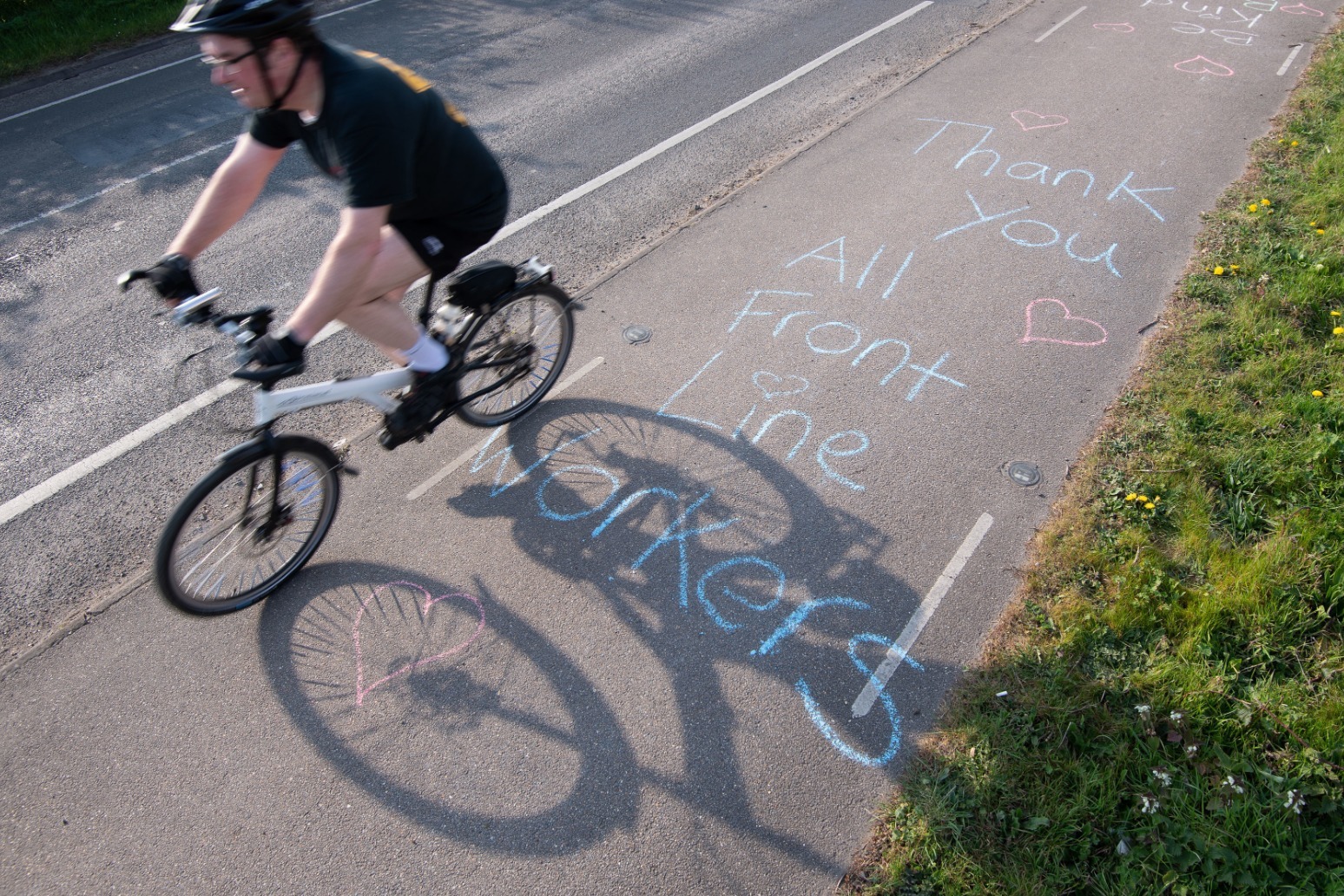
Still too early to ease COVID-19 lockdown, warn ministers
Ministers have cautioned it is still too soon to begin lifting the coronavirus lockdown, after Boris Johnson spent a second night in intensive care undergoing treatment for the disease. The Prime Minister's condition remains "stable", according to the latest bulletin from Downing Street issued on Tuesday evening.
He was said to be in "good spirits" in St Thomas' Hospital in London where he is undergoing "close monitoring" after his condition worsened on Monday.
Mr Johnson had on Monday been due to oversee a three-week review of the lockdown rules - brought in last month to curb the spread of the disease.
However with the number of cases continuing to rise, health minister Edward Argar made clear now is not the time to start easing the restrictions.
"We need to start seeing the numbers coming down and that's when you're in the negative," he told BBC Breakfast.
"That's when you have a sense when that's sustained over a period of time, that you can see it coming out of that.
"We're not there yet and I don't exactly know when we will be. The scientists will tell us that they are constantly modelling the data and they're constantly looking at those stats.
"We should also remember there is always a lag of a couple of weeks in the hospitalisation and death rate data behind the actions that we've taken to try to slow it down, because that's the nature of the disease."
It followed a similar warning on Tuesday from Foreign Secretary Dominic Raab - who is deputising for Mr Johnson in his absence - who said ministers first need to see evidence that the measures are working.
The Government's chief scientific adviser Sir Patrick Vallance said the figures "could be moving in the right direction", but suggested they need another "week or so" before they could be sure.
Meanwhile the first of the NHS Nightingale hospitals, at London's ExCel centre, received its first patients on Tuesday.
The Nightingale was built to boost treatment capacity in London, but officials stressed limits have not yet been reached at other sites across the capital.
An NHS Nightingale London spokeswoman said: "There is also treatment capacity available in other hospitals across London to complement the care being provided at the London Nightingale."
The admissions come just two weeks after the temporary hospital with a planned capacity of 4,000 was formally announced, but later than had initially been expected.
London Mayor Sadiq Khan said the capital now has the capacity it needs to deal with the epidemic.
"At the moment we've still got 25%, about there, capacity within the NHS (in London) before we even go to Nightingale, so it demonstrates the can-do attitude of not just Londoners but those around the country who have helped us get ready for the peak of this virus," he told BBC Breakfast.
Meanwhile, President Donald Trump claimed on Tuesday night that the UK had called the US with an urgent plea for 200 ventilators, as ministers seek to scramble to boost capacity for the sickest of patients.
The president said: "We're going to work it out, we've got to work it out. They've been great partners. They wanted 200, they need them desperately."
Meanwhile Professor Chris Whitty, the chief medical officer for England, has said the UK needs to learn from the example of Germany where the number of deaths appears to be growing more slowly.
"We all know that Germany got ahead in terms of its ability to do testing for the virus and there's a lot to learn from that and we've been trying to learn the lessons from that," he said.
Published: by Radio NewsHub